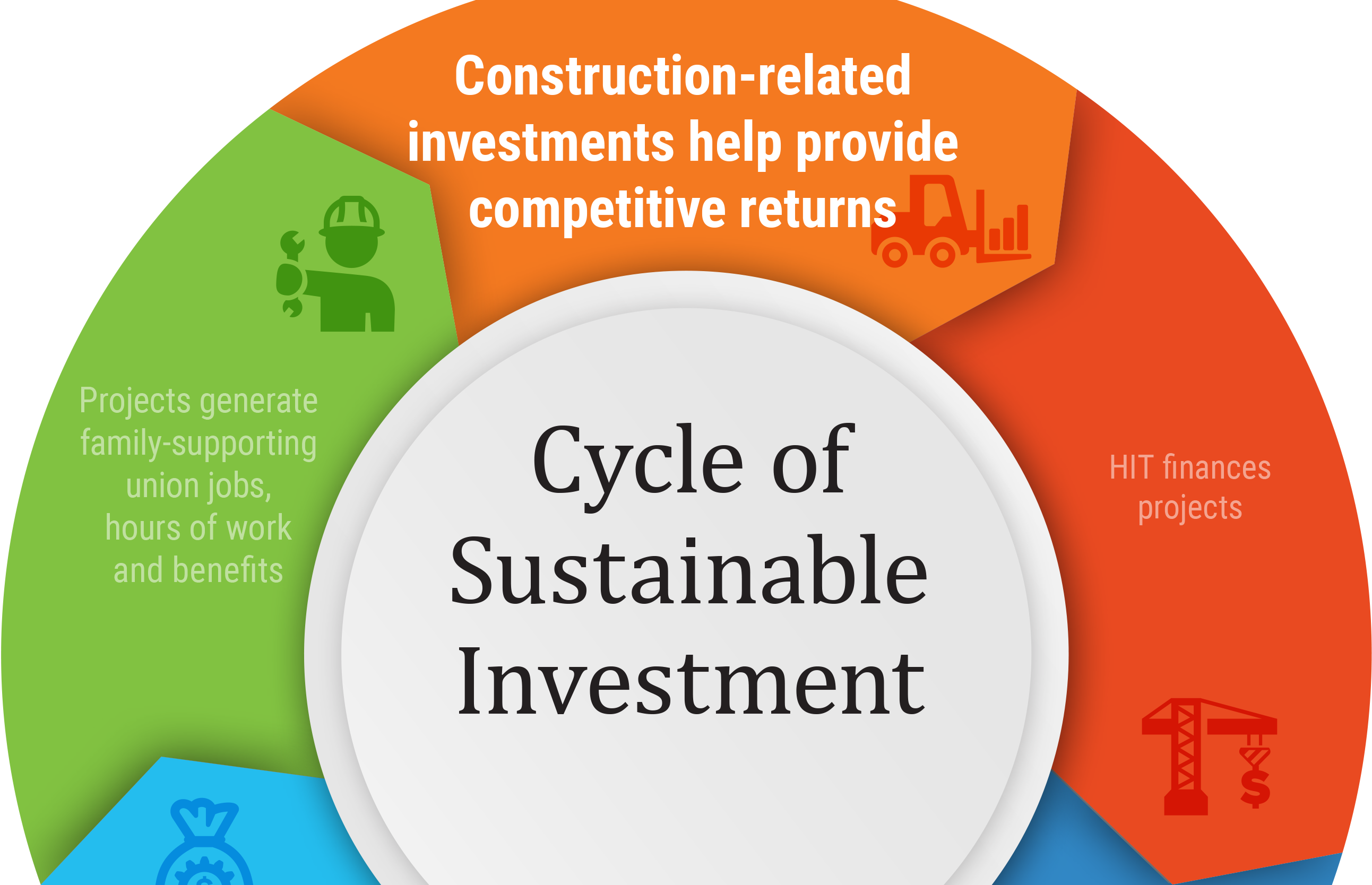The Benefits Of Sustainable Investing
Reading “The Benefits of Sustainable Investing,” you will discover how sustainable investing not only nurtures the planet but also fosters financial growth. This article guides you through the positive impact of making mindful investment choices, illustrating how supporting environmentally and socially responsible companies can benefit both your portfolio and the world around you. Embracing sustainability in your investments can lead to a brighter future for everyone—let’s unravel how you can make a difference while growing your wealth.
Have you ever wondered how you can make your investments not only profitable but also beneficial for the planet? If so, you’re not alone. There has been an increasing interest in sustainable investing, and for good reasons. This approach offers you the chance to earn returns while supporting companies that align with your values.
What is Sustainable Investing?
In essence, sustainable investing is a strategy where you consider Environmental, Social, and Governance (ESG) factors alongside financial returns. By integrating ESG criteria, you can invest in companies that are committed to sustainable practices. This doesn’t mean sacrificing returns; rather, it’s about making informed decisions that reflect your principles and contribute positively to society.
Types of Sustainable Investing
There are various approaches to sustainable investing, each with its unique focus and methodology. Understanding these can help you choose the strategy that suits your goals best.
Environmental, Social, and Governance (ESG) Investing
ESG investing involves assessing how a company performs against specific environmental, social, and governance criteria. Factors like carbon footprint, social responsibility, and leadership quality are considered to determine the company’s ethical impact.
Socially Responsible Investing (SRI)
SRI goes a step further by excluding or including specific sectors or companies based on ethical guidelines. This often involves avoiding investments in industries like tobacco, firearms, or fossil fuels, and opting for those that promote social good.
Impact Investing
Impact investing is all about directing capital towards companies or projects that aim to generate measurable social and environmental impact alongside financial returns. This can be particularly rewarding if you are passionate about tackling specific global challenges.
Green Bonds
Green bonds are a type of fixed-income instruments specifically earmarked to raise money for climate and environmental projects. If environmental sustainability is your primary concern, green bonds could be a great choice for you.

Why Sustainable Investing Matters
You might ask why focus on sustainable investing. Let’s break down some powerful reasons.
Financial Returns
Contrary to the belief that sustainability compromises financial returns, many sustainable investments have shown competitive performance. Companies that prioritize ESG factors often demonstrate long-term resilience and adaptability.
Risk Management
ESG investing can help you mitigate risks associated with poor governance, environmental disasters, and social unrest. By investing in companies that adopt sustainable practices, you’re less likely to face unexpected losses.
| Risk Type | Conventional Investing | Sustainable Investing |
|---|---|---|
| Regulatory Risk | Higher due to less compliance | Lower due to proactive measures |
| Reputational Risk | Potentially high due to controversies | Lower, focused on ethical practices |
| Operational Risk | Impacted by resource shortages | Lower due to sustainable sourcing |
Align with Personal Values
Sustainable investing allows you to put your money where your values are. If you care deeply about issues like climate change, diversity, and ethical governance, sustainable investing provides a direct avenue to support these causes.
Influence Corporate Behavior
By choosing sustainable investment options, you can drive positive change in corporate behavior. When more capital is allocated to companies with strong ESG practices, it incentivizes others to adopt similar ethical standards.
The Financial Performance of Sustainable Investments
While the primary focus of sustainable investing might be ethical considerations, it’s essential to acknowledge the financial performance as well.
Historical Performance
Studies have shown that sustainable investments can offer returns comparable to traditional investing strategies, sometimes even exceeding them. Companies that score high on ESG factors often exhibit robust financial health and resilience.
Future Outlook
The future of sustainable investing looks promising. With growing awareness and regulatory support, the demand for sustainable investments is expected to surge. This could lead to even better performance as companies strive to meet higher ESG standards.
Case Studies
Tesla
Tesla is a prime example of a company that has successfully aligned financial returns with sustainability. With its focus on electric vehicles and renewable energy, Tesla has not only delivered impressive market performance but also driven substantial advancements in environmental sustainability.
Unilever
Unilever’s commitment to sustainability is evident in its operations and product offerings. By integrating sustainability into its core business strategy, Unilever has managed to achieve consistent growth while addressing significant social and environmental challenges.
| Company | Focus | Financial Performance | ESG Impact |
|---|---|---|---|
| Tesla | Electric Vehicles | High market performance, rapid growth | Reduced carbon emissions |
| Unilever | Sustainable Products | Consistent growth, market leadership | Enhanced social and environmental impact |

The Role of Governments and Regulations
Government policies and regulations play a significant role in promoting sustainable investing.
Regulatory Support
Many governments are introducing regulations and incentives to encourage sustainable practices. This includes tax benefits for green initiatives and stricter reporting requirements for ESG factors.
International Agreements
International agreements like the Paris Agreement aim to combat climate change and promote sustainable development. Such initiatives create a conducive environment for sustainable investments.
Corporate Disclosure
Governments are increasingly requiring companies to disclose ESG-related information. This transparency helps investors make informed decisions and fosters a culture of accountability and sustainability.
How to Get Started with Sustainable Investing
If you’re new to sustainable investing, you might wonder how to get started. Here are some steps to guide you.
Define Your Values and Goals
Start by identifying the issues you care about most. Whether it’s environmental conservation, social equality, or corporate governance, knowing your priorities will help you choose the right investment strategy.
Research Investment Options
Take the time to research different sustainable investment options. Look into ESG funds, green bonds, and companies with strong sustainability practices. Tools and resources are available to help you evaluate these options based on their ESG performance.
| Step | Action |
|---|---|
| Define Values and Goals | Identify your priorities (e.g., climate change, social equality) |
| Research Investment Options | Look into ESG funds, green bonds, and sustainable companies |
| Evaluate ESG Performance | Use tools and resources to assess ESG factors and company performance |
Consult Financial Advisors
Consider consulting financial advisors who specialize in sustainable investing. They can provide valuable insights and help you create a diversified portfolio that aligns with your values and financial goals.
Monitor and Review
Sustainable investing is an ongoing process. Regularly review your portfolio to ensure it continues to align with your values and financial objectives. Keep abreast of new developments in the field and adjust your strategy as needed.

Common Myths About Sustainable Investing
There are several myths and misconceptions surrounding sustainable investing. Let’s debunk some of them.
Myth 1: Sustainable Investing Sacrifices Returns
Many people believe that prioritizing sustainability means compromising on financial returns. However, numerous studies have shown that sustainable investments can match or even outperform traditional investments.
Myth 2: Limited Investment Options
Some assume that there are limited investment options in the realm of sustainable investing. In reality, there’s a wide array of choices, including funds, bonds, and individual stocks that meet ESG criteria.
Myth 3: Only for Environmentalists
Sustainable investing isn’t limited to environmental issues. It’s a holistic approach that considers social and governance factors as well. Whether you care about human rights, corporate governance, or climate change, there’s a sustainable investment option for you.
Myth 4: Difficult to Measure Impact
While it can be challenging to measure the impact of sustainable investments, various frameworks and tools are available to assess ESG performance effectively. These tools provide a quantifiable means to gauge the social and environmental impact of your investments.
Future Trends in Sustainable Investing
The landscape of sustainable investing is continually evolving. Here are some future trends to watch.
Integration of Technology
The use of technology in sustainable investing is expected to grow. Advanced analytics, artificial intelligence, and blockchain can enhance transparency, tracking, and performance evaluation of ESG factors.
Increasing Regulatory Support
With growing awareness of climate change and social issues, expect more regulatory support for sustainable investments. Governments around the world are likely to introduce stringent regulations to promote ESG practices.
Enhanced Reporting Standards
Reporting standards for ESG factors are becoming more rigorous and standardized. This will enable more accurate and comparable assessments of companies’ sustainability practices, helping you make informed investment decisions.
Expansion of Impact Investing
Impact investing is set to expand as investors look for meaningful ways to generate social and environmental change. We can expect a broader range of impact investment opportunities across different sectors and regions.

Conclusion
Sustainable investing offers a unique opportunity to align your financial goals with your values. By considering ESG factors, you can support companies committed to positive change while potentially earning competitive returns. The landscape of sustainable investing is rich with opportunities, tools, and resources to help you make informed decisions. As awareness grows and regulatory support strengthens, the future of sustainable investing looks promising.
So, why not take a step towards investing in a way that benefits both you and the planet? Your investment choices can drive significant social and environmental transformation while securing your financial future.
Happy investing!
